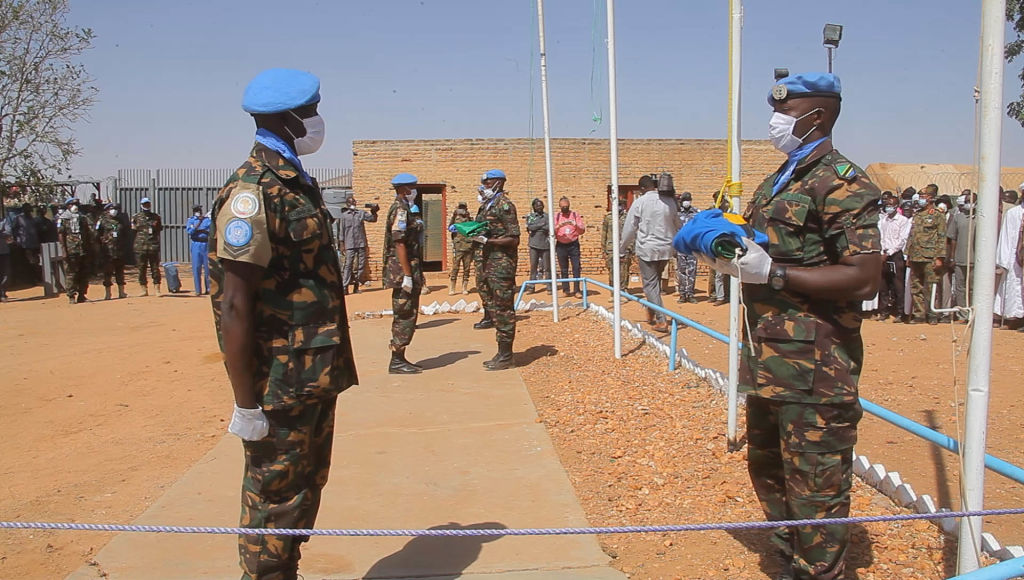Conditions in Darfur Have Some Experts Calling for a Return of U.N. Peacekeepers
ADF STAFF
Armed men drove Dawoud Adam Ishak from his home in Sudan’s Darfur region.
“They came at night when we were sleeping,” Ishak told Voice of America. “So, we woke up and fled.”
Ishak joined more than 100,000 Sudanese who have crossed the border into Chad since fighting broke out on April 15 between the Sudan Armed Forces (SAF) and the paramilitary Rapid Support Forces (RSF).
The fighting that started in Khartoum has since extended to the Darfur region, where the RSF has its base. Brutal attacks across West Darfur and North Darfur have burned villages, killed thousands, and sent thousands more running for their lives.
The ongoing violence echoes the genocidal assaults on non-Arab groups conducted 20 years ago by the government-supported Janjaweed, the precursor to the RSF. That, in turn, has some experts asking: Should peacekeepers return to Darfur?
“Yes,” security expert Alistair Edgar of the Balsillie School of International Affairs told Voice of America. “There’s a really quick answer for you.”
Edgar said a renewed peacekeeping mission is called for “because of the level of violence and also because of the potential for that violence to spread outside — into Chad and across borders as well.”
Darfur’s previous peacekeeping effort was UNAMID, the United Nations-African Union Mission in Darfur. It shut down on June 30, 2021, after 13 years under pressure from the Sovereignty Council that ruled Sudan after the 2019 overthrow of dictator Omar al-Bashir.
The 19,000-person hybrid operation faced criticism for its inability to stop killings of civilians and attacks on communities by the Janjaweed and government forces then controlled by al-Bashir. In some cases, critics described UNAMID peacekeepers standing by as militias attacked civilians.
Writing in The New Humanitarian, Mohammed Amin and Phillip Kleinfeld noted, “UNAMID’s ability to protect civilians was often hamstrung by al-Bashir’s regime, which intimidated and obstructed peacekeepers seeking access to sensitive spots, denied flight clearances for mission aircraft, and refused countless visas to staff members.”
As the mission wound down, its bases were attacked and looted by militias across the region.
It’s unclear if an attempt to relaunch UNAMID or to authorize a similar peacekeeping operation could win the needed votes in the U.N. Security Council. The RSF, which is responsible for much of the killing in Darfur, is closely allied with Russia’s Wagner Group mercenaries.
In the past, Russia has used its Security Council veto to block U.N. actions in the Central African Republic, where Wagner is deeply involved with the government and with gold and diamond mining. In 2016, Russia blocked a U.N. report that detailed gold smuggling by Darfuri militias and an attack on UNAMID forces by the Janjaweed.
Security expert Walter Dorn, with the Royal Military College of Canada, told VOA that a renewal of a U.N. peacekeeping mission in Darfur is unlikely in the short term.
“At present there doesn’t seem to be the political will to create a peacekeeping force in Darfur,” Dorn said, “but as the situation gets worse there will be increasing calls to do so.”


Comments are closed.